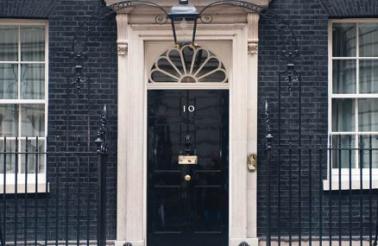Number Ten has set up a new policy unit to improve relations with charities, faith organisations and businesses.
Charlotte Lawson, who was previously development and strategic partnerships director at the Centre for Social Justice, joined the new government relations team last week as a special adviser to lead on the “development of the government's relationships with the voluntary sector”.
She is one of number of staff appointed by Number Ten to improve relations with key groups.
Karl Wilding, director of public policy at NCVO, said he was encouraged by the new initiative.
“It’s based in Number Ten so it has the imprimatur of the Prime Minister on it,” he said. “This seems to me to be part of the social reform agenda that May made a big deal of when she first came to office. We welcome this new interest from the Prime Minister.
“It’s indicative of a stronger commitment to working with the voluntary sector, which has also been evidenced in a number of conversations I’ve had at the Conservative Party Conference so far.”
Resetting the relationship
A number of figures from the charity sector last night called on the government to work with the charity sector more closely, at a fringe event at the Conservative Party Conference, organised by Acevo.
Rob Wilson, minister for civil society, was unable to attend the event, which was being held to celebrate the voluntary sector.
‘Have faith in us’
Javed Khan, chief executive of Barnardo’s, said: “Rob Wilson isn’t here, if he was I would say ‘have confidence, have faith’ in us.”
But added that “We can’t do it alone” and urged the government to support, and work with, the sector.
He also said the sector had to face up to a number of challenges and become more “open and transparent” by publishing impact reports.
Khan, who spoke exclusively to Civil Society last week, also said the sector needs to become “more diverse” to “give us a better understanding of communities we serve” so that it has “better skills to reach them” and can “increase volunteer workforce”.
‘More strategic support for the sector’
Peter Lewis, chief executive of the Institute of Fundraising called on the government to provide more strategic support for small charities.
He said that spending cuts meant that more charities were needing to fundraise which is why targeted strategic support could help “smaller charities starting to fundraise develop income streams to help them help themselves”.
Lewis added that a programme with small heritage charities was proving sucessful and showed that “smaller strategic amounts can really help charities reach out to people and bring them together”.
‘We shouldn’t be seen as amateur’
Jeremy Hughes, chief executive of Alzheimer’s Society, said it was wrong that charities were seen as “amateur” by the public.
He called on the sector to come together to raise awareness.
“We can change it if we work together” he said, and likened it to the Giving Campaign that the sector ran and led to the introduction of gift aid.
He said it was important to explain that “charities are businesslike but they are not businesses,” are “efficient but not for profit” and “they need to be run well”.
“We have got to get that message out there,” he said.
‘We need to make a constructive fuss'
David McCollough, chief executive of Royal Voluntary Service, said the sector needs to make sure the government listens to it.
“We have got to make ourselves heard,” he said and “make a constructive fuss”.
There is a “massive opportunity” he said “to help people understand things that we do that are different from the private or public sectors”.
‘Reset the relationship’
Sam Lowe, campaign lead at Friends of the Earth, said it was time for a new relationship between the charity sector and Conservative Party.
“With a new Prime Minister it’s time to reset the relationship between the Conservative government and charities,” he said.
“For too long we’ve been seen as at loggerheads,” he added.
Friends of the Earth is calling on the government to adopt all of Lord Hodgson’s recommendations on the Lobbying Act and to lessen restrictions on charities’ campaigning, which Lowe said is “vital for our democracy”.
‘Don’t damage the city’
John Low chief executive of the Charities Aid Foundation, urged the government to bear in mind the contribution that the the City of London makes to philanthropy when looking at Brexit options.
“We would miss this contribution if it was no longer there,” he said.
He also reminded the audience that charities and politicians are on the same side.
“Charity leaders and politicians both committed to making the world a better place,” he said.









